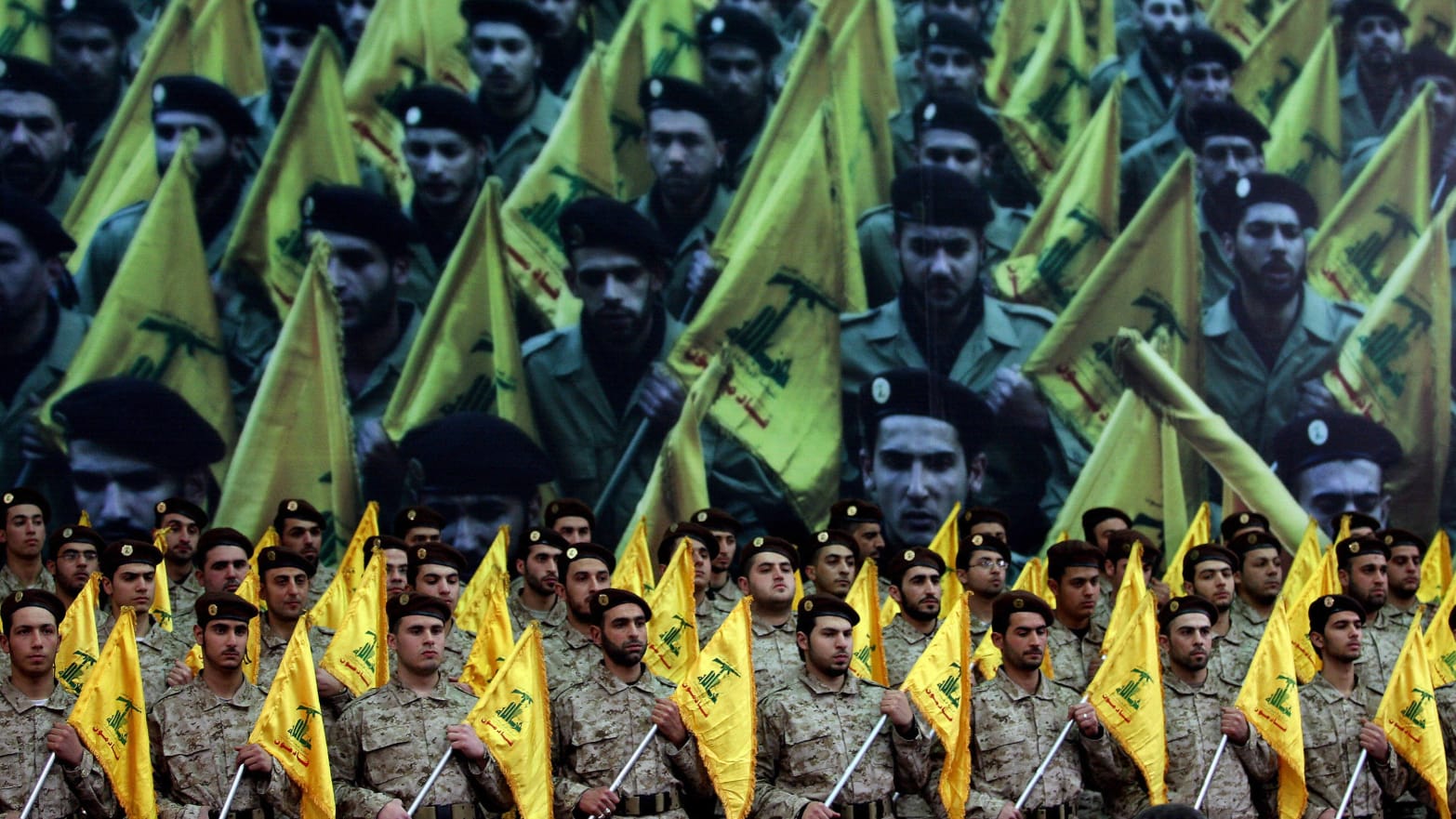As Iran-U.S. Tensions Rise, Hezbollah Readies for War With Israel
Hezbollah field commanders say they’re redeploying toward Israel’s border, ready to fight in a devastating conflagration.
BEIRUT—The tranquil winding roads of Lebanon’s mountainous interior are far from the tense waters of the Persian Gulf where President Donald Trump says America came within 10 minutes of war with Iran a few weeks ago. And where, he said on Thursday, the U.S. shot down an Iranian drone. But if fighting ever does begin, these hills and valleys near the border with Israel will quickly be on the front lines. And according to Hezbollah commanders, that moment could be coming soon.
When Trump talked of war, he meant a shooting war in the conventional sense. But for Iran and its allies, it’s Trump’s economic war with its suffocating sanctions that is bringing the region to the brink of armed conflict. The targets of Trump’s weaponized dollar increasingly see resorting to military engagements as the only response left.
Here in Lebanon, Hezbollah’s commanders are close allies and clients of Iran—and they are targeted by U.S. sanctions as well. They warn that if the pressure continues these rugged hills where the Party of God fought bloody guerrilla campaigns to end 15 years of Israeli occupation in 2000 and repel an Israeli invasion in 2006 could erupt once again.
And this time, they say, the combat will be far more devastating.
Hezbollah’s forces, battle-hardened in the Syrian civil war, have begun redeploying toward the Israeli border, not only in Lebanon, but in Syria opposite the Israeli-occupied side of the Golan Heights.
Hezbollah fighters who spoke to The Daily Beast say their organization is hurting from sanctions and ready to initiate hostilities—if and when Tehran deems that necessary.
“The sanctions now have us preparing for dealing with the Israeli front,” says “Commander Samir,” a Hezbollah officer in charge of 800 fighters on Lebanon’s border with Israel. He declines to use his real name because he is not authorized to speak to the media. “We will fire the first shot this time,” he says.
“The pressure may actually be consolidating and motivating Iran’s proxies.”
Hezbollah’s military wing has changed fundamentally since its 2012 entrance into the war in Syria to prop up the Assad regime, transforming into a regional fighting force the Shia organization inspired by the Iranian revolution that the U.S. lists as a terrorist group.
When Trump offers the reasons he pulled out of the nuclear deal with Iran last year, precipitating the current crisis, he cites Iran’s support for militias that extend its power and influence across the region as something the U.S. intends to end—with Hezbollah the main target.
But the pressure may actually be consolidating and motivating Iran’s proxies.
Hezbollah is still fighting in Syria while training Iranian allied militias in Iraq and Yemen. The commander says his organization and Iran have moved past their split with Palestinian allies over Syria, where they were on opposite sides of the Syrian revolution as it turned into a bloody regional proxy war, and Iran is once again providing training and support for Hamas and Palestinian Islamic Jihad.
From a living room overlooking the valleys where he became a veteran, ambushing the Israeli army and melting away into the surrounding hills, Samir says the next war will be nothing like those that came before.

No comments:
Post a Comment